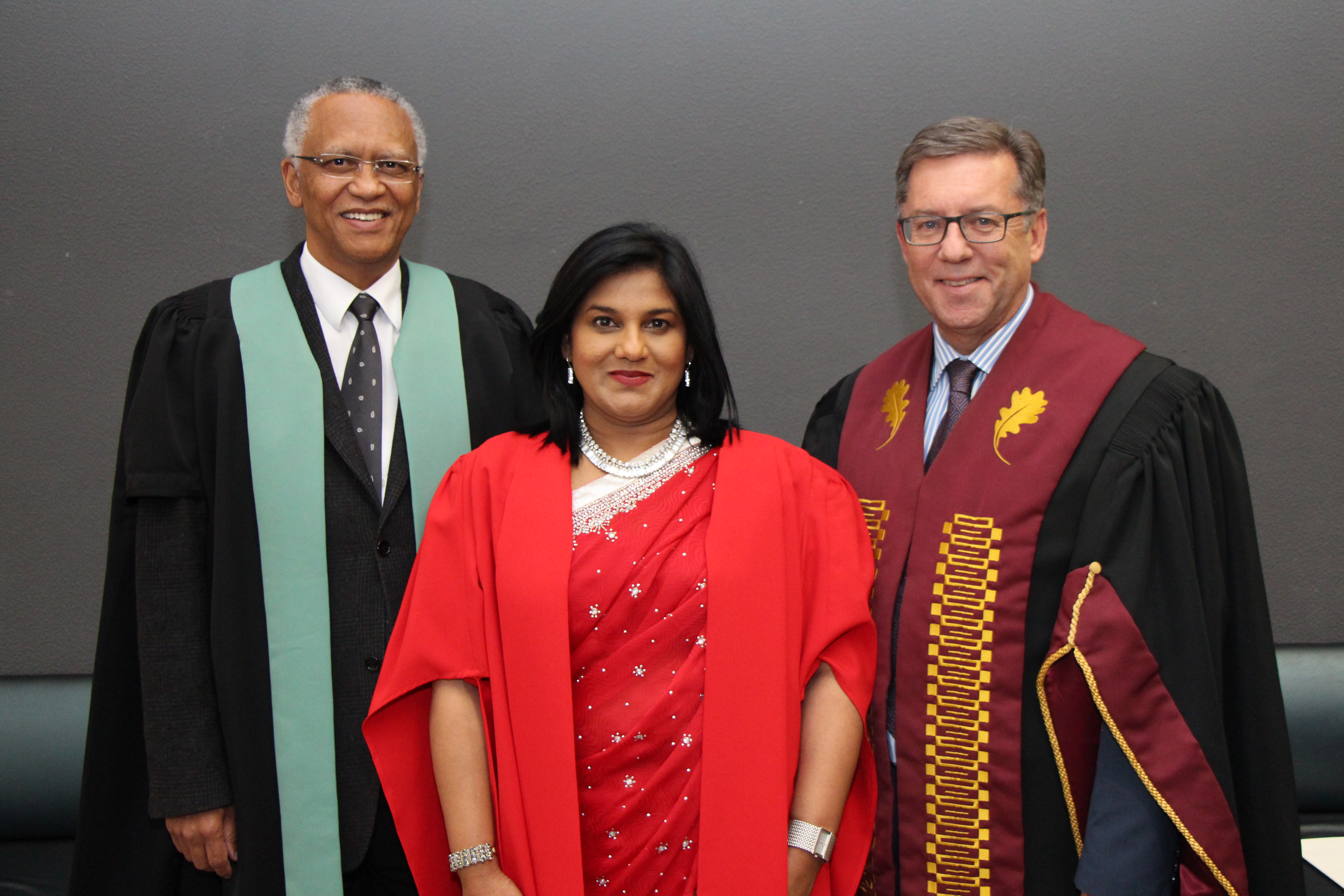
Advances in medical research bring new ethical challenges
Technological advances in health sciences have brought with them new and complex ethical challenges that we need to deal with.
This was one of the viewpoints of Prof Keymanthri Moodley of the Faculty of Medicine and Health Sciences (FMHS) at Stellenbosch University in her inaugural lecture on Thursday (4 August 2016).
"Emerging biological and information technologies have not only created unparalleled opportunities to advance medical science but also complex ethical challenges, both in clinical medicine and medical research," Moodley said.
She highlighted two research areas in which we have witnessed this phenomenon, namely the fields of synthetic biology (designing and building of new biological systems) and the storage of data, blood and human tissue.
According to Moodley, advances in synthetic biology have powerful implications for health care and the biological sciences in general.
"The potential for novel genomic research, enhanced drug development and managing diseases resistant to conventional therapy is enormous."
Moodley said the storage of blood and data in biobanks ̶ located at the intersection of science, genetics, genomics, society, ethics, the law and politics ̶ have become important for medical researchers, as it has enormous transformative potential.

"The storage of blood and data in biobanks as an opportunity for future research is generally regarded as a common good for humanity."
However, researchers must also be mindful of the intricate web of ethical and social complexities inherent in collecting, storing and future use of biospecimens, Moodley said.
She also called attention to broad ethical issues such as scientists "playing God", biosafety and biosecurity.
"While we embrace the advances in medical science, we need to tread cautiously in terms of the extent to which medical professionals "play God" in creating new life forms or in manipulating DNA to eliminate disease."
The emphasis must be on the common good, Moodley argued.
In this regard, she pointed to the trend in bioethics – the study of morality as it applies to the biological sciences, including health care and health research ̶ from individual good to solidarity and reciprocity that favour the common good.
This is critical, yet dependent on rebuilding trust between patients and doctors and between research participants and researchers, Moodley said.
"Moving the focus from self-interest to communal good is imperative, but will only occur when trust in medical science is restored."
She encouraged bioethicists to play a strong advocacy role in all contexts where injustice is allowed to fester and to continue conceptualising and articulating ethical dilemmas and advancing debates on controversial societal challenges.
- Photo 1: Pixabay
- Photo 2: Proff Jimmy Volmink, Dean of FHMS, Keymanthri Moodley and Eugene Cloete, Vice-Rector: Research, Innovation and Postgraduate Studies, at the inaugural lecture.
